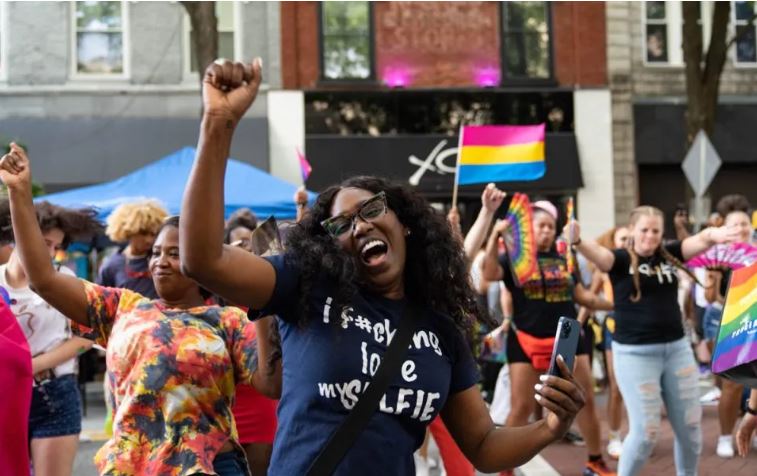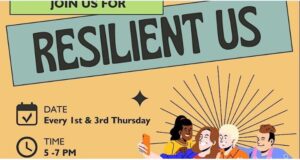
In the ever-evolving landscape of adolescent development, LGBTQ+ teens face unique challenges and opportunities that set their experiences apart from their peers. The journey from childhood to adulthood is fraught with changes and difficulties, and for LGBTQ+ youth, the path is often further complicated by issues related to identity, acceptance, and belonging. Amidst these complexities, “Resilient Us” emerges as a beacon of hope and support. This group is specifically designed for LGBTQ+ teens aged 13 through 17, offering a safe space where they can connect with peers, learn effective coping strategies, and build a robust community of support.
Navigating adolescence is inherently challenging, marked by rapid physical, emotional, and social changes. For LGBTQ+ teens, these challenges are often compounded by additional layers of difficulty. They may grapple with issues such as coming out, dealing with discrimination, and seeking acceptance from their families and communities. These factors can contribute to feelings of isolation, anxiety, and depression. Recognizing these specific needs, “Resilient Us” provides a crucial support network tailored to help LGBTQ+ teens thrive during these formative years.
One of the primary goals of “Resilient Us” is to create a space where LGBTQ+ teens can connect with others who share similar experiences and struggles. This connection is not merely about socializing; it is about building meaningful relationships with individuals who truly understand and validate their experiences. Traditional social settings, including schools and community groups, may not always offer the acceptance or understanding that LGBTQ+ teens seek. In contrast, “Resilient Us” provides a unique opportunity for these teens to engage with peers who are going through similar journeys, fostering a sense of belonging and camaraderie.
The power of peer support cannot be overstated. Research consistently shows that having a network of peers who understand and share one’s experiences can have profound benefits for mental health and overall well-being. For LGBTQ+ teens, connecting with others who have faced similar challenges can provide a sense of validation and reassurance. It helps them realize that they are not alone in their struggles and that their experiences are both valid and worthy of acknowledgment. Through group activities, discussions, and shared experiences, “Resilient Us” creates an environment where these teens can feel accepted, valued, and understood.
In addition to fostering peer connections, “Resilient Us” places a strong emphasis on equipping members with effective coping strategies. Adolescence is a period of emotional upheaval, and for LGBTQ+ teens, the stakes are even higher. Coping strategies are essential tools that help individuals manage stress, navigate challenges, and maintain emotional balance. Within the group, members have the opportunity to learn and practice various coping techniques designed to address the specific issues they face.
One of the key components of these coping strategies is emotional regulation. Learning how to manage emotions in a healthy way is crucial for maintaining mental well-being. Techniques such as mindfulness, deep breathing exercises, and journaling can help teens stay grounded and reduce feelings of anxiety or depression. “Resilient Us” provides a platform for teens to explore these techniques and find what works best for them. By incorporating these strategies into their daily lives, members can build resilience and improve their ability to handle stress.
Another important aspect of coping is developing self-esteem and self-acceptance. LGBTQ+ teens may face internalized stigma and self-doubt as a result of societal pressures and discrimination. “Resilient Us” addresses these issues by creating a supportive environment where members can explore and affirm their identities. Through positive reinforcement, group discussions, and activities that celebrate diversity, teens are encouraged to embrace their true selves and build confidence in their identities. This process of self-acceptance is vital for emotional health and well-being, and it helps teens develop a positive self-image.
Practical advice for dealing with specific challenges is also a significant part of the group’s programming. LGBTQ+ teens often encounter difficulties in various aspects of their lives, including family relationships, friendships, and school environments. “Resilient Us” offers guidance and support for navigating these situations. Whether it’s finding ways to communicate with unsupportive family members or managing conflicts with peers, the group provides practical strategies and resources to help members address these challenges effectively.
Building a supportive community is at the core of “Resilient Us.” Creating a space where LGBTQ+ teens feel safe and valued is essential for fostering positive development and well-being. The group is designed to be more than just a meeting place; it is a community where members can express themselves openly and authentically. This sense of community is built on principles of respect, empathy, and inclusivity. Facilitators and members work together to ensure that everyone feels heard, understood, and accepted.
Facilitators play a crucial role in creating and maintaining this supportive environment. They are responsible for guiding the group’s activities, facilitating discussions, and providing emotional support. Facilitators often have backgrounds in counseling, social work, or LGBTQ+ advocacy, which equips them with the skills needed to address the specific needs of the group. Their role is not only to lead but also to model positive behaviors and create a safe space where members can freely express themselves.
The impact of “Resilient Us” extends far beyond the immediate benefits of connection and coping strategies. For many LGBTQ+ teens, participation in the group can lead to long-term positive outcomes. Improved mental health, increased self-confidence, and a stronger sense of identity are just a few of the potential benefits. By providing a space where teens can connect with others, learn effective coping techniques, and build a supportive network, “Resilient Us” helps them navigate the challenges of adolescence with resilience and strength.
Mental health is a significant concern for LGBTQ+ youth, who are at a higher risk for issues such as depression, anxiety, and suicidal ideation. By offering a supportive community and practical coping strategies, “Resilient Us” helps to mitigate these risks. Members often report feeling more empowered and resilient as a result of their participation in the group. This sense of empowerment is crucial for building the emotional resilience needed to face and overcome the challenges of adolescence.
Self-confidence and identity development are also important aspects of the group’s impact. As teens interact with others who share similar experiences, they gain validation and affirmation of their identities. This process of self-acceptance can lead to increased self-esteem and a stronger sense of self-worth. “Resilient Us” encourages members to embrace their identities proudly and to recognize their value and potential.
Looking ahead, “Resilient Us” continues to evolve and adapt to the needs of its members. The group regularly assesses its programs and seeks feedback from participants to ensure that it remains relevant and effective. By staying attuned to the changing needs of LGBTQ+ teens, “Resilient Us” can continue to provide valuable support and foster resilience among its members.
In conclusion, “Resilient Us” serves as a vital resource for LGBTQ+ teens, offering a space where they can connect, learn, and grow. Through peer support, coping strategies, and community building, the group plays a crucial role in helping LGBTQ+ teens navigate the challenges of adolescence. By providing a supportive environment where members can express themselves authentically and develop essential life skills, “Resilient Us” empowers LGBTQ+ teens to embrace their identities, build resilience, and thrive.


Leave a Reply